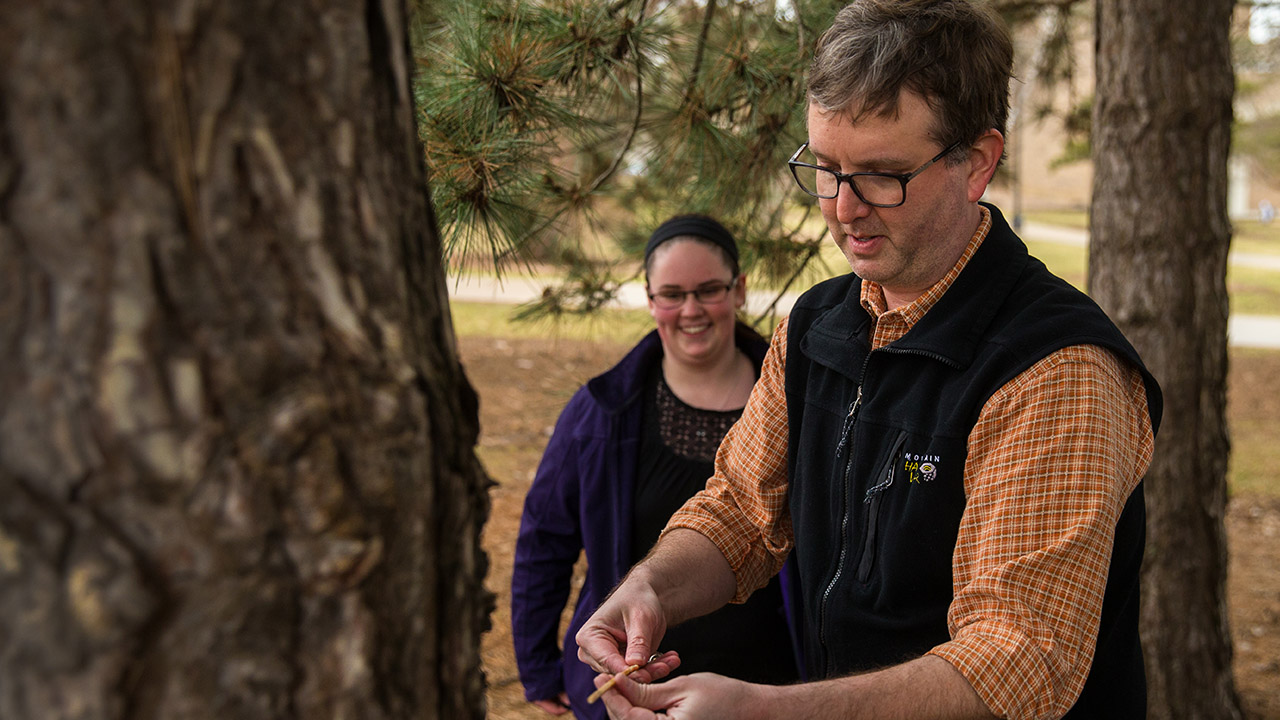

The University of Wisconsin-Platteville Department of Geography is now offering a new undergraduate degree, environmental science and conservation. The program launched this fall with more than a dozen students declaring the major.
“The B.S. in environmental science and conservation is a multi-dimensional degree built upon curriculum from the natural, physical and social sciences, as well as the humanities and technology,” said Dr. Kory Wein, interim dean of the College of Liberal Arts and Education. “The College of LAE is the perfect home for such a diverse degree. This offering provides a highly desirable major that will engage our students in modern approaches to environmental stewardship and conservation and prepare them to solve environmental problems in the 21st century.”
According to Dr. Chris Underwood, associate professor of geography and department chair, the program is transdisciplinary and comes at a crucial time when there are so many critical environmental issues to address. In developing the curriculum Underwood worked with a team consisting of two faculty members from the Colleges of BILSA and LAE and one faculty member from the College of EMS.
“We are at a stage globally as a species that we have never faced before. We have created so many issues on the land, in the air and water,” he said. “It is one of the most important majors we could offer at the university right now.”
Prior to unveiling the program, the department of geography only offered an environmental science minor. Now that the major has gone live, Underwood said he’s been receiving positive feedback from both current and prospective students.
“My excitement is off the charts. I’m absolutely thrilled to be able to offer this curriculum to our students,” he said. “In these first few months, we have had students declare this as their first major and a handful of students who have transitioned from other degrees into this degree. We are also seeing high school students who are signing up for virtual visits.”
The new program curriculum focuses on five major themes: foundational environmental principals, people in the environment, land conservation and management, physical resources and environmental systems, and environmental issues and policy. Within all of these major themes, students will have opportunities in field-based learning, geospatial techniques (e.g., GIS), and undergraduate research opportunities.
“Our department has a long and rich history of field-based courses,” Underwood said. “We cannot have a degree like this and not take our students outdoors and teach in the outdoor living laboratory. We will continue and grow that tradition with this new degree.”
Another aspect of the program is an emphasis on students learning the human history of the land. Faculty in environmental science and conservation and other departments in the College of LAE are in the process of crafting a Land Acknowledgement Statement that will encourage students to reflect on the people who originally inhabited this land.
“Most modern cities and towns in the United States, including the colleges and universities therein, exist today because in the not-too-distant past, European colonizers took this land from Native Americans,” Underwood said. “For the new environmental science and conservation major one of the things we want our students to walk away with is a full understanding of not only western science, but also how Indigenous people cared for the land.”
Underwood is looking forward to what lies ahead for the program. He hopes graduates earning this degree will be even more mindful and better stewards of the land.
“We are excited about the trajectory of this major and the potential collaborations with other environmental and sustainability geared programs on campus,” he said. “I think there is so much potential for us to work together and deliver a world class environmental education for UW-Platteville students.”